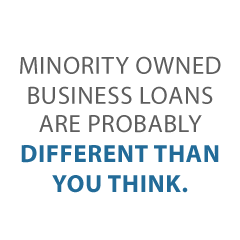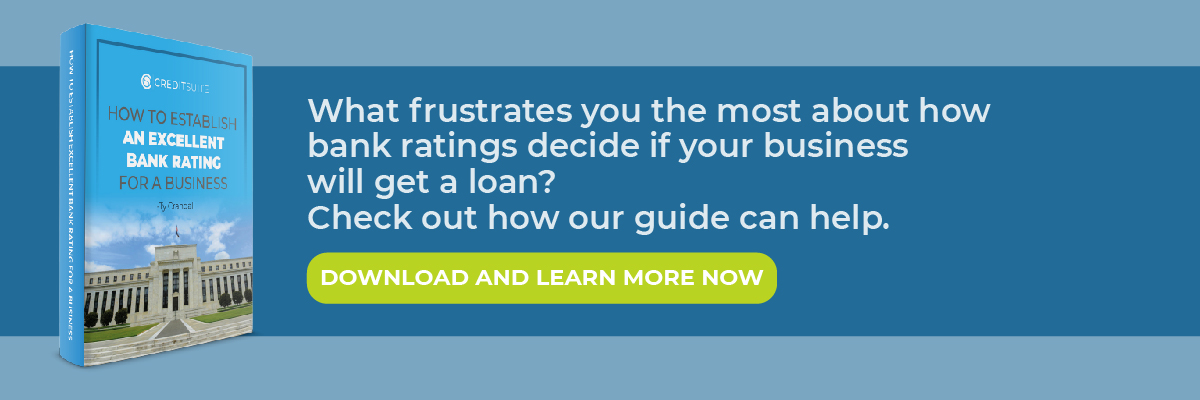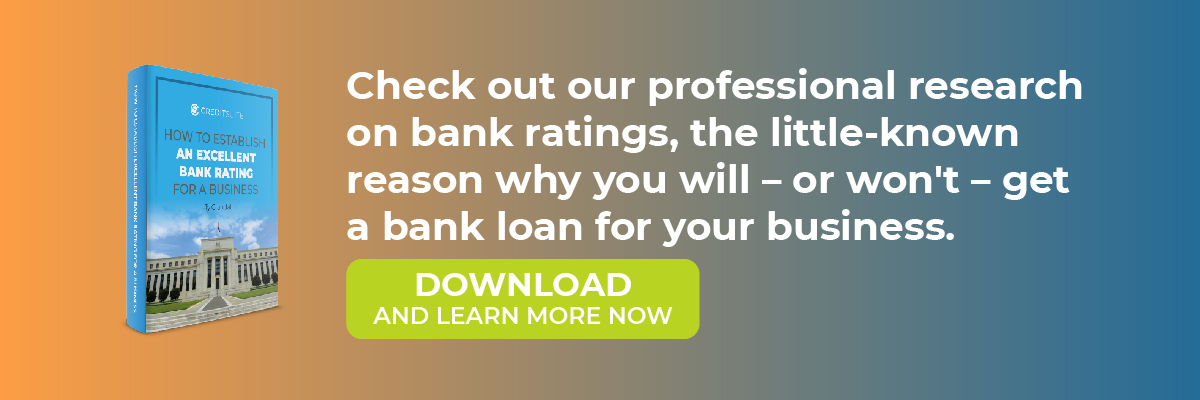Minority owned business loans are probably different than you think. Sometimes they are just like they sound, loans for minority business owners. Other times, they are just loans for everyone that work well for minority business owners as well.
Minority Owned Business Loans Do Not All Look the Same
Sometimes you can be so busy looking for minority owned business loans specifically that you miss the great options that will work but are not for minorities only. In a way, these loans are undercover. They are available to more business owners than just minorities. However, they work really well with the challenges that are unique to minority business owners. Here are just a few examples.
Loans from The Small Business Administration
 The Small Business Administration specializes in helping all small businesses. They offer a number of products and resources through SBA programs, not just minority owned business loans. For the most part, the SBA does not lend money directly. They work through partner financial institutions to guarantee SBA government loans. As a result, they are able to leave the administration of the loans and disbursement of funds to those who do it on a regular basis. That is, lenders and non-profits that are in the communities where the businesses exist.
The Small Business Administration specializes in helping all small businesses. They offer a number of products and resources through SBA programs, not just minority owned business loans. For the most part, the SBA does not lend money directly. They work through partner financial institutions to guarantee SBA government loans. As a result, they are able to leave the administration of the loans and disbursement of funds to those who do it on a regular basis. That is, lenders and non-profits that are in the communities where the businesses exist.
SBA 7(a) Loans & 8(a) Business Development Program
These loans are open to all small business owners. However, if a minority business owner takes part in the SBA Business Development program, they increase their chance of getting this type of loan.
Honestly, about 80% of SBA loan applications from Hispanic and African Americans are for $150,000 or less. This is according to the SBA itself. Surprisingly, these smaller loans seem to be harder to get. Honestly, this is probably because lenders don’t make as much money from them.
In fact, the SBA got rid of the fee for loans that are less $150,000 to help with this.
Check out our best webinar with its trustworthy list of seven vendors to help you build business credit.
SBA Community Advantage Loans
These are to meet the needs of small businesses in neglected markets. That includes minorities. The goal is to get local lenders to increase loans up to $250,000. This is done by backing up to 85% of the loan amount. The hope is that this helps small business owners who might not be able to get traditional financing.
SBA Microloan Program
First, loans through this program go up to $50,000. Secondly, funds come from a third-party lender. Usually, this consists of nonprofit organizations in the community. Often, they also offer other types of assistance to business owners along with the loan.
Minority Owned Business Loans: Non-SBA Loans
There are private lenders that offer loans that will meet the needs of minority business owners also, but they are not specifically minority owned business loans. One such example is Accion.
Accion U.S. Network
Accion offers loans in all states. Funds are available to the following:
- minorities
- veterans
- women
- those with disabilities
- and low to medium income business owners
Typically, loan amounts start at $200,000 and go up to $300,000. Also, Accion can put owners in contact with others to help build a network of support.
Comparatively, the minimum credit score for these loans is 575. In addition, you cannot be 30 days late on paying any accounts. Finally, you will not qualify if you have late rent or mortgage payments over the past 12 months.
Minority Owned Business Loans That Don’t Wear a Mask
In contrast to the above loans that anyone can apply for, some minority owned business loans are exactly what you expect. They are designed specifically for those in minority groups to aid in overcoming the unique challenges they face in obtaining business funding.
Union Bank Business Diversity Lending Program
This program from Union Bank offers business loans for minority business owners. Indeed, this one is specifically for minorities. In fact, to qualify, you must be Hispanic, American Indian, Latino, Asian, Alaskan Native, African American, Native Hawaiian, or other Pacific Islander.
Furthermore, a business that makes up to $20 million could qualify for a loan of $2.5 million. However, you must be in business for at least 2 years. Likewise, the business must be at least 51% minority owned.
The National African American Small Business Loan Fund
This is a partnership between JP Morgan Chase and the Valley Economic Development Centers . It serves small businesses with minority owners that are in low income or medium income communities. However, only those in New York, Los Angeles, and Chicago are eligible.
Business Center for New Americans
Presently, The Business Center for New Americans offers minority business loans of $5,000 to $50,000. They work with immigrants, refugees, women, and other minority entrepreneurs. The goal is to help minority business owners who have not been able to get traditional financing.
Camino Financial
Camino Financial is a lender that operates all online. They offer minority owned business loans. Conveniently, their entire application process is online. Microloans range from $5,000 to $50,000. Additionally, they offer small business loans between $10,000 to $400,000.
Build Business Credit to Increase Your Chances of Approval with Any Loan
Business credit is a huge piece of overall fundability. The business credit building process is the same for everyone, minority or not. When you work through the process, you increase your fundability. That in turn, increases your chances of being able to get funding of all types in the future. How do you build business credit?
It Starts with the Foundation
When you set up your business, you need it to have a foundation that will help build fundability and separate it from you as the owner. Even if you are already in operation, you can take the steps necessary to do this. However, the sooner the better, for a number of reasons. What does it take to build a foundation of fundability?
- Separate contact information
Your business needs its own phone number and address.
- An EIN
This is free on the IRS website.
- All necessary and appropriate licenses
If you are not properly licensed to do what you do, lenders will not take you seriously. This step is necessary to being a legitimate business.
- Incorporation
There are many reasons for this. However, for business credit building the big thing is it further separates your business from you as the owner.
- A D-U-N-S Number
This is free to get on the Dun & Bradstreet website. You cannot have a business credit profile with D&B without one.
- Business Bank Account
Like incorporating, there are many reasons for this. The main one for building credit building however, is that it further solidifies your business as an entity separate from you the owner.
- Professional website
This one surprises a lot of people. These days, if you don’t have an online presence you might as well not even exist. However, a poorly put together online presence is just as bad. Pay for professional design and hosting. It’s worth it.
Check out our best webinar with its trustworthy list of seven vendors to help you build business credit.
These things are not only necessary for overall fundability, but they are also the first step in the business credit building process, and it is a process. It takes time, and you have to start at the beginning.
The Business Credit Building Process
Even though most lenders will still take personal credit into account, separate business credit allows them to judge your business on its own merits. If they can see that, despite some personal credit issues, business credit is just fine, it may sway them if they are wavering on approving funding.
In addition, business credit opens up new funding doors that are not available to individuals, which in turn can only help you run and grow your business.
You Need Accounts Reporting to Your Business Credit Report
The key to this is to get accounts in your business’s name that do not really take your personal credit into account. It may feel like it is impossible, but it isn’t. There are a few ways to do it.
First, vendors you already have a relationship with may be willing to extend credit without a credit check. If that isn’t happening, they might be willing to offer net 30 terms on invoices. The worst that can happen is they say no. If they say yes, ask them to report the payments to the business credit agencies.
Utilities might also report accounts to your business credit. You already pay utilities, rent, and internet each month. Ask those providers to report your payments to the business credit reporting agencies. Make sure your accounts are set up in your business name with your business contact information. Worst case scenario is that they say no. It never hurts to ask.
Starter Vendors in the Vendor Credit Tier to Help Build Business Credit
This is the business credit building secret that many business owners are unaware of. We call them starter vendors. These are part of the vendor credit tier. They are certain companies that will extend Net terms in your business name without a credit check. After you pay, they will report those payments to the business credit report agencies (CRAs).
Since they do not check your credit score, it doesn’t matter that you do not have one. Of course, they do have other ways of reducing risk. They vary by vendor. Below, we have listed a few of these starter vendors to give you an idea of what you are looking for.
Marathon
Check out starter vendor Marathon. Marathon Petroleum Company provides transportation fuels, asphalt, and specialty products throughout the United States. Their comprehensive product line supports commercial, industrial, and retail operations. This card reports to Dun & Bradstreet, Experian, and Equifax. Before applying for multiple accounts with WEX Fleet cards, make sure to have enough time in between applying so they don’t red-flag your account for fraud.
To qualify, you need:
• Entity in good standing with Secretary of State
• EIN number with IRS
• Business address- matching everywhere.
• D-U-N-S number
• Business License- if applicable
• Business Bank account
• Business phone number listed on 411
Your SSN is required for informational purposes. If concerned they will pull your personal credit talk to their credit department before applying. You can give a $500 deposit instead of using a personal guarantee, if in business less than a year. Apply online. Terms are Net 15.
Grainger Industrial Supply
Grainger sells power tools, pumps, hardware and more. In addition, they can handle maintenance of your auto fleet. You need a business license and EIN to quality, as well as a D-U-N-S number.
You can apply by fax or over the phone. If you need less than $1,000 in credit, you only need a business license for approval. For over $1,000, you will need trade and bank references.
If you are just starting out and do not have references, the $1,000 is plenty to get you started building your business credit. Read our full Grainger net 30 review here.
Behalf.com
As of 8/24/2020 Behalf no longer reports. For more information on how to find accounts that report give us a call at 877-600-2487.
Behalf is a way of getting paid through an app. However, they also offer funding. The more you have your customers pay you through Behalf, the more likely Behalf is to offer you favorable terms when it comes to funding.
Funding can be through purchase financing or a virtual Mastercard option. Terms run from Net 30 to 180 days, and they report to Dun & Bradstreet, Experian, and Equifax. The fact that they report to all the major credit reporting agencies makes them an extremely valuable tool in building business credit.
Check out our best webinar with its trustworthy list of seven vendors to help you build business credit.
Then What?
After you have enough of these types of accounts reporting payments to your business credit report, you should have a strong enough score to move on to the next tier. We call this the retail credit tier. They offer more traditional credit. These are credit cards for use at specific stores such as Office Depot or Lowes. This is also sometimes referred to as store credit.
After you have several of these store credit accounts reporting, you can apply for cards in the fleet credit tier. These are gas cards with companies such as Shell and Fuelman. They can be used for fuel and auto repair and maintenance only.
Lastly, with accounts reporting from all previous tiers, you should have a score strong enough to apply for cards from what we call the cash credit tier. Of course, that is only if you have been making payments consistently on time.
These are traditional credit cards that are not connected to a certain store or type of purchase. They can be used for anything and everything. In addition, they often have better interest rates and nice rewards programs.
https://creditsuite.wistia.com/medias/r54tn2c470?embedType=async&videoFoam=true&videoWidth=640
Building Business Credit Can Open the Door to Many More Funding Options
Looking for and applying to minority owned business loans is a completely viable option. However, do not limit yourself. Take a look at other loan possibilities that you may not even realize you qualify for. At the same time, start working through the business credit building process. Then, you’ll have many more funding options available in the future. The more funding available to you, the faster and stronger you can grow your business.



